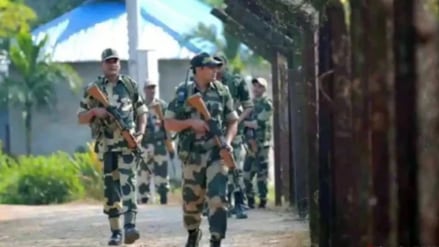In recent months, a troubling pattern of attacks and violence against minority communities in Bangladesh has come to the forefront, drawing attention from both domestic and international observers. According to findings released by Bangladesh’s law enforcement agencies, a staggering 98.4% of the 1,415 investigated cases of attacks and vandalism against minorities between August 4 and August 20, 2024, were politically motivated. This has raised important questions about the role of politics in exacerbating violence and the government’s response to such acts of aggression.
A Breakdown of Findings
The Bangladesh Police’s investigation has uncovered a startling distinction between the natures of these attacks. Of the total 1,415 cases that were thoroughly investigated, 1,254 (approximately 88%) were confirmed to have been politically motivated, with only 20 (1.59%) attributed to communal tensions. While this data casts light on the political undercurrents influencing violence, it also brings to the fore the complexity of understanding the real reasons behind such acts.
The Bangladesh Hindu Buddhist Christian Unity Council, an advocacy group, reported over 2,000 cases of communal violence during the same period. However, the police’s data suggests that fewer than 1,800 attacks were officially documented, with over 350 cases still under investigation. The police report, issued by the Chief Adviser’s office, has sparked a wider debate about the veracity of these statistics and the motivation behind these violent actions.
Political Motivations: Understanding the Connection
The classification of such a large majority of these incidents as “politically motivated” raises a critical question: What role does political conflict play in these attacks, and how does it exacerbate tensions within communities? Political violence in Bangladesh is often linked to factional struggles between parties and pressure from power dynamics in the run-up to elections. Minority groups, especially Hindus, Buddhists, and Christians, who are often seen as politically neutral or affiliated with opposition parties, may be deliberately targeted by political actors seeking to create division and instability in their opponents’ strongholds.
These communities, being vulnerable, frequently find themselves caught in the crossfire of a broader political struggle. This raises alarms not only about their safety but also about the deterioration of Bangladesh’s democratic values. The state’s unwillingness to classify the incidents as communal, despite the obvious targetting of religious minorities, further complicates the issue, leaving these groups without the protection and support they desperately need.
The Response of the Interim Government
In the aftermath of the reported incidents, the interim government, which took office amid rising tensions, has been criticized for downplaying the severity of these attacks. Officials have been quick to dismiss reports from civil society organizations as exaggerated, with the police themselves acknowledging the political nature of these incidents only after substantial time had passed.
The refusal to fully acknowledge the scale of the violence raises important concerns about the government’s commitment to holding perpetrators accountable and ensuring justice for victims. The lack of concrete action to prevent further violence, and the apparent delay in legal proceedings, reflects a larger pattern of impunity that has long plagued the country. As of December 2024, reports have emerged indicating over 2,200 attacks on minorities, yet few substantial steps have been taken to address the root causes or curb the escalation of violence.
A Deep-Rooted Issue
The vulnerability of minority groups in Bangladesh has historical roots, aggravated by socio-political tensions and the rise of religious nationalism. Political actors, in particular, exploit these communities as a means to secure political mileage, often using them as pawns in the larger game of electoral politics. The politicization of violence against minorities is not just a manifestation of power struggles between political parties but also reflects deep-seated communal divides that the state has failed to adequately address.
The political instrumentalization of violence against minorities further emboldens perpetrators, who operate with the belief that their actions will not face significant consequences. This creates a vicious cycle of impunity, where the perpetrators are rarely held accountable, and the victims are left to fend for themselves.
A Call for Accountability
In light of these disturbing developments, it is crucial that the Bangladesh government takes immediate steps to address both the causes and consequences of such violence. A more transparent and impartial investigation process must be initiated, with an emphasis on holding political actors and individuals accountable for their roles in inciting violence against minorities. Moreover, the government must ensure that its security forces, especially law enforcement agencies, are adequately trained to identify and address political violence rather than dismissing it as mere criminal behavior.
Preventative measures, such as fostering inter-community dialogue, improving law enforcement’s response to hate crimes, and enhancing protection for vulnerable communities, must also be prioritized. Only through these actions can Bangladesh hope to restore peace and protect the rights of its minority citizens.
The Broader Context
The deteriorating situation concerning minority rights in Bangladesh also has implications for India-Bangladesh relations. Both nations share deep historical and cultural ties, with India being home to a large number of Bengali-speaking Muslims and Hindus, many of whom trace their roots to Bangladesh. Historically, India has been an advocate for the protection of minorities in its neighboring country, especially given its role in the liberation of Bangladesh in 1971.
However, recent developments, particularly regarding the treatment of minorities in Bangladesh, have strained the relationship. The rise in attacks on religious minorities has raised concerns in India, which has traditionally viewed the welfare of Bangladesh’s minorities as a key issue. These concerns are compounded by the broader geopolitical context, with India facing pressure from international human rights organizations to take a stand on the issue. The situation also brings to light the challenges both countries face in managing their domestic affairs while navigating complex cross-border dynamics.
